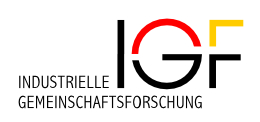Under critical operating conditions in various industrial plants, such as high thermal and mechanical loads, often in combination with small quantities of oil or in the presence of catalytic elements, high-speed plain bearings exhibit varnish formation that is dangerous for the operation of the plant.
Project start: "Varnishing" tendency of lubricating oils
The lacquer-like layer is deposited on tribological functional surfaces and changes the system properties. In valves and filters, the layers can lead to blockages and thus to system failure. Until now, the problem was mainly limited to high-speed shafts in turbines. However, ever smaller oil quantities combined with ever higher power density and less polar base oils are now also causing problems in hydraulics and other systems. The currently established test methods are primarily aimed at evaluating the varnishing potential, i.e. the predicted tendency of a lubricant to form varnish. Time-consuming and cost-intensive system tests must be carried out for oil and additive development. However, these provide largely unreliable forecasts, as the formation of varnish layers cannot be attributed solely to the respective lubricant properties, but rather must be derived from the properties of the tribological system as a whole and from system-specific parameters such as temperature distribution, pressures and flow rates.
On July 1, 2025, the DGMK will launch the research project "Varnishing" tendency of lubricating oils - investigation of influencing factors and layer structure (DGMK project 872).
The underlying research approach pursues a paradigm shift from a lubricant-focused perspective to a fundamental analysis of the formation of the coating layer as a function of the tribological stress collective and the technological boundary conditions. With the help of a new laboratory test methodology, the risk of varnishing can be better predicted for industrial companies depending on the stress collective of the tribological system.

The project is funded by the Federal Ministry for Economic Affairs and Energy on the basis of a decision by the German Bundestag (IGF project 01IF23906N).

Project partners
Mannheim University of Applied Sciences Tribology Competence Center
IFOS gGmbH Institute for Surface and Coating Technology
You need to load content from reCAPTCHA to submit the form. Please note that doing so will share data with third-party providers.
More Information